The lifespan of air conditioners typically ranges from 10 to 15 years with proper maintenance and usage. Factors such as brand quality, installation, climate conditions, and frequency of maintenance can influence longevity. Regular cleaning, changing filters, and addressing minor issues promptly can extend the lifespan. However, after a certain point, repairs may become more frequent and costly, signaling the need for replacement. Regular professional inspections can help assess the condition and efficiency of the unit, aiding in decisions about repair or replacement.
Your air conditioner may not be blowing cold air due to several possible reasons. It could be a result of low refrigerant levels, indicating a potential leak in the system. Another common issue is a dirty or clogged air filter, obstructing proper airflow. Additionally, a malfunctioning compressor or faulty thermostat could be the culprit. Sometimes, simple issues like a tripped circuit breaker or a malfunctioning capacitor might be to blame. Consulting a professional technician for diagnosis and repair is advisable to ensure optimal performance of your air conditioning system.
The best form of home heating depends on various factors such as climate, energy efficiency, upfront costs, and personal preferences. Options include forced-air systems, radiant heating, heat pumps, and wood-burning stoves, each with its own advantages and drawbacks. Considerations like insulation quality and local fuel availability should also be taken into account when selecting the most suitable heating system for a particular home. Consulting with a heating professional and conducting a thorough cost-benefit analysis can help homeowners make an informed decision tailored to their specific needs.
The cheapest heating system to install typically depends on various factors such as the size of the space, local fuel availability, and upfront installation costs. However, electric resistance heaters tend to be among the most affordable options in terms of initial investment, as they don’t require a complex ductwork system and are relatively straightforward to install. Additionally, portable space heaters can offer a budget-friendly solution for heating specific areas or rooms without the need for extensive installation expenses. Nevertheless, it’s essential to consider long-term operating costs and energy efficiency when evaluating the overall affordability of a heating system.
Ideal indoor air quality encompasses a balance of factors such as proper ventilation, humidity levels, and the absence of pollutants like allergens, VOCs (volatile organic compounds), and particulate matter. It aims to maintain a comfortable and healthy environment for occupants, minimizing the risk of respiratory issues and other health concerns associated with poor air quality. Monitoring and controlling these elements through air filtration systems, regular maintenance, and limiting the use of certain products contribute to achieving optimal indoor air quality, promoting overall well-being and productivity.
Plumbing encompasses a wide range of activities related to the installation, maintenance, and repair of systems that convey fluids, primarily water, within buildings and structures. This includes tasks such as installing pipes, fixtures, and appliances like sinks, toilets, and water heaters, as well as maintaining and repairing these components to ensure proper functionality and efficiency. Plumbers are skilled professionals who work with various materials and techniques to address issues such as leaks, clogs, and water pressure problems, playing a vital role in maintaining the infrastructure of homes.
Drain pipes are typically smaller pipes within a building that carry wastewater away from sinks, showers, and appliances to the sewer system or septic tank. They handle relatively clean water and are usually made of materials like PVC or ABS. On the other hand, sewer pipes are larger pipes outside the building that carry sewage from multiple drains to the municipal sewer system or a septic tank. They are designed to handle a higher volume of wastewater and are often made of sturdier materials like cast iron or clay. While both types of pipes serve the purpose of transporting wastewater, their size, location, and material composition differ to accommodate their respective functions.


When summer heat hits and your air conditioner sputters out, your home can quickly become an uncomfortable and sweltering space. Fortunately, professional air conditioning repair services can diagnose and address various issues, ensuring your AC system functions efficiently and restores cool comfort to your home. Here’s what you can expect during the repair process:
Remember: Attempting DIY repairs on an AC unit, particularly gas-powered models, can be dangerous and should only be performed by qualified and experienced professionals. Don’t risk your safety; trust certified technicians to handle your air conditioning repair needs.
Installing a new air conditioning system in your home can be a significant investment, but the rewards of year-round comfort are undeniable. To ensure a smooth and successful installation process, professional air conditioning installation services are highly recommended.
Here’s what typically happens:
By following these steps, professional air conditioning installation services can ensure your new AC unit will keep you and your family cool and comfortable.


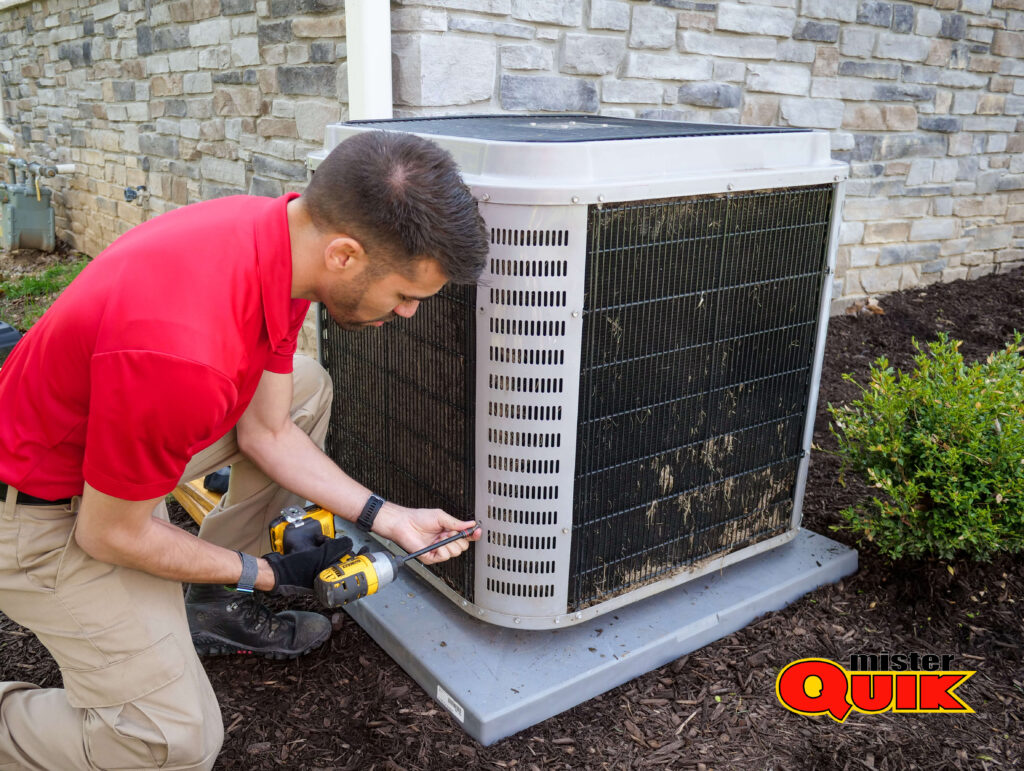


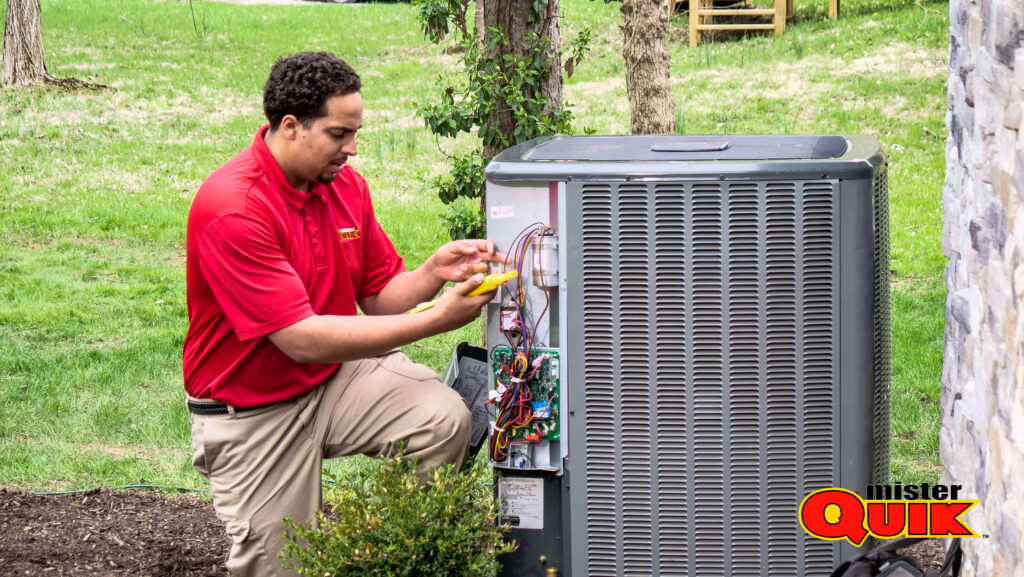
Maintaining a cool and comfortable home throughout the year is crucial, especially during scorching summers. Regular air conditioning service plays a vital role in ensuring your AC system functions optimally, efficiently, and lasts for years to come. Here’s what you can expect from different types of AC services:
By investing in regular air conditioning service, you can enjoy numerous benefits:
Remember, a well-maintained AC unit not only cools your home effectively but also saves you money and ensures the comfort and well-being of your family.
When you’re seeking home air conditioning service near you, look no further than Mister Quik Home Services. Our team of skilled technicians is dedicated to providing prompt and professional air conditioning service tailored to your needs. Whether it’s repairs, maintenance, or installations, we’re committed to keeping your home cool and comfortable throughout the year. Contact us today to schedule your air conditioning service and ensure your home remains a haven of comfort, even during the hottest months.


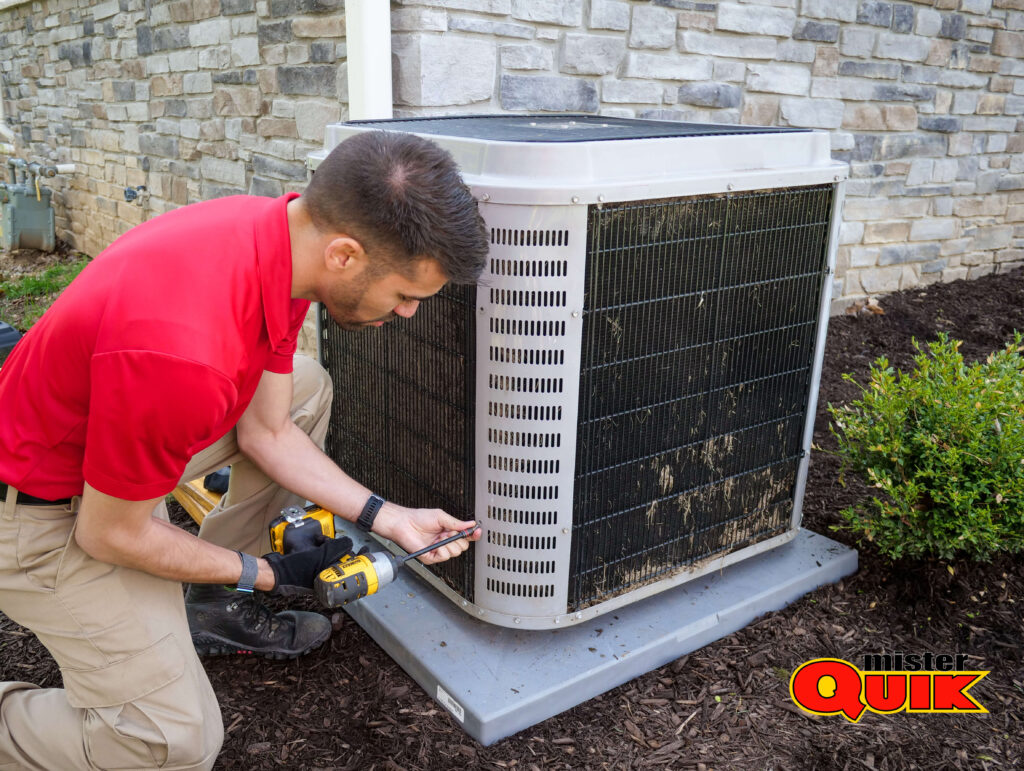
There are several main types of air conditioners, each with its own advantages and limitations, suitable for different needs and situations. Here’s a brief overview:

Heating systems keep your home warm and comfortable during cold seasons. There are various types of heating systems available:
Choosing the best heating system for your house depends on various factors, including your budget, the climate in your area, the size and layout of your home, and your personal preferences. Here are some popular options to consider:
Ultimately, the best heating system for your house will depend on your specific needs and preferences. Consider consulting with a professional HVAC technician to assess your home and recommend the most suitable heating system for optimal comfort and efficiency.
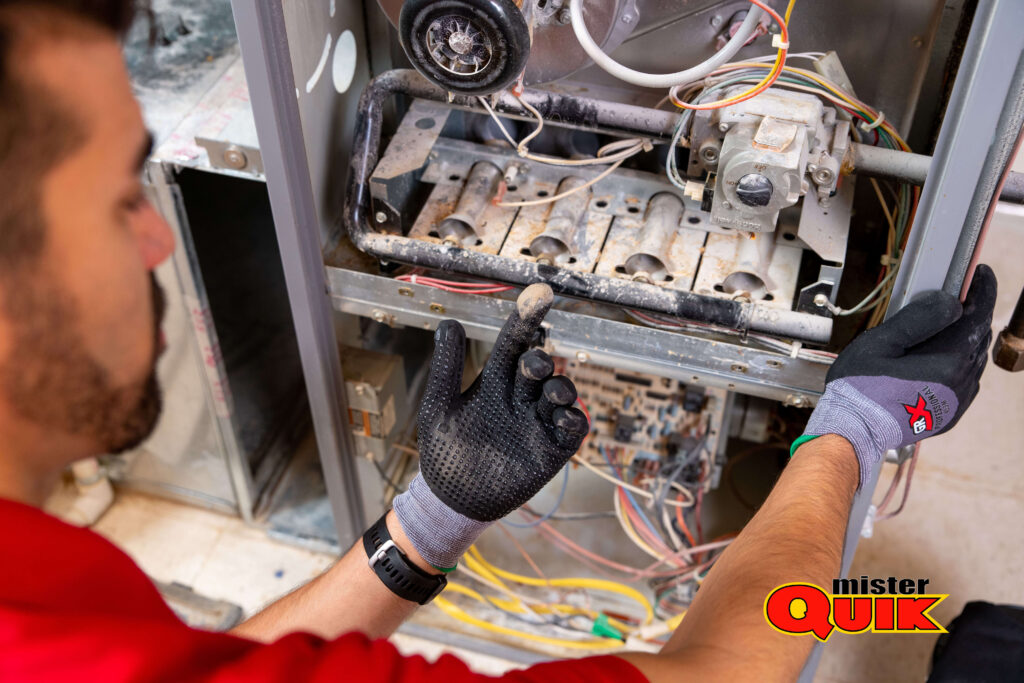

The cost of a heating system can vary greatly depending on several factors, including:
As a general estimate, central heating systems can range from $6,500 to several thousand dollars for more complex installations.
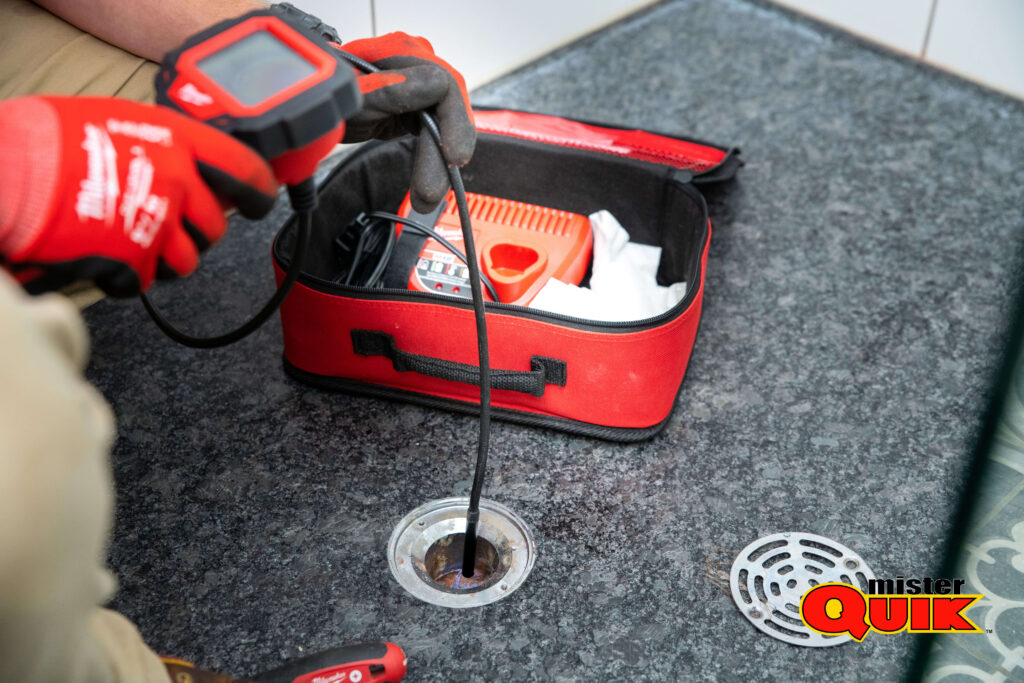
When you’re in need of plumbing services nearby, Mister Quik Home Services is here to assist you. Our team of experienced plumbers is dedicated to providing prompt and professional plumbing solutions tailored to your needs. Whether it’s a leaky faucet, a clogged drain, or a major plumbing repair, we’re committed to resolving your plumbing issues efficiently and effectively. Trust Mister Quik for reliable plumbing services conveniently located near you. Contact us today to schedule an appointment and experience the difference our expertise can make in your home.
Ensuring your plumbing system functions properly and efficiently is crucial for maintaining a comfortable and functional home. Here’s an overview of various plumbing services available to address your needs:



When seeking plumbing services, choose a licensed and experienced professional with a good reputation. Ask for references, inquire about their service warranties, and get clear estimates before committing to any work. By taking proactive measures and utilizing professional plumbing services, you can ensure your home’s plumbing system operates seamlessly and efficiently, preventing potential problems and maintaining a comfortable living environment.
When searching for reputable plumbing companies in your area, look no further than Mister Quik Home Services. As one of the leading plumbing companies nearby, we pride ourselves on delivering top-quality plumbing services to our customers. Our team of skilled plumbers is committed to providing reliable solutions for all your plumbing needs, from repairs and installations to maintenance and inspections. With our prompt response, transparent pricing, and exceptional customer service, you can trust Mister Quik to handle your plumbing projects with professionalism and expertise.
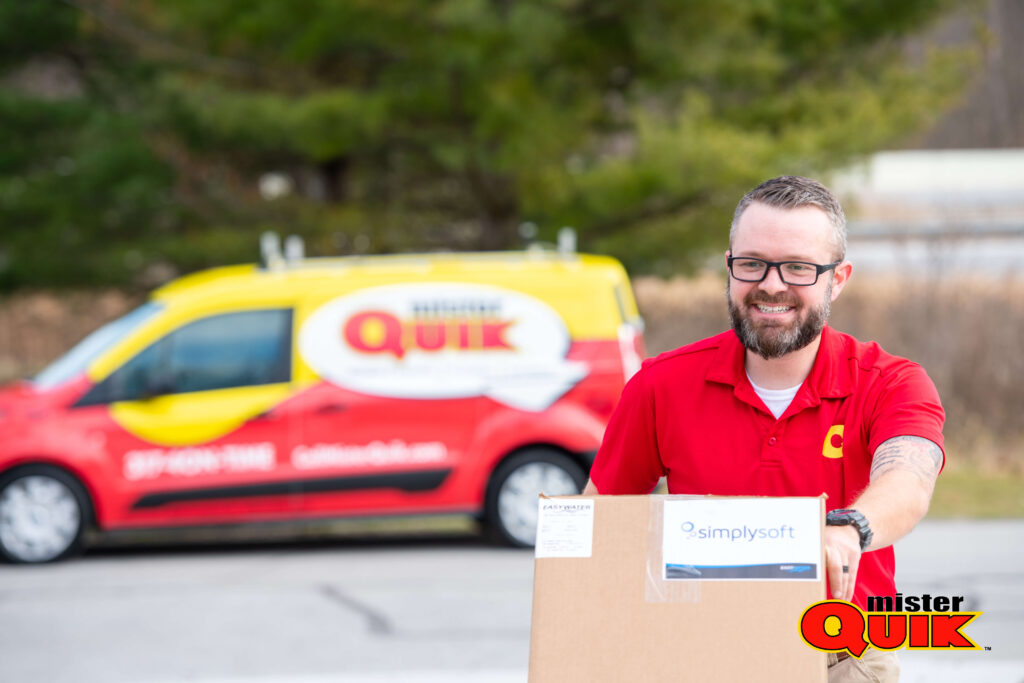

When you call a plumbing contractor, you can expect the following:
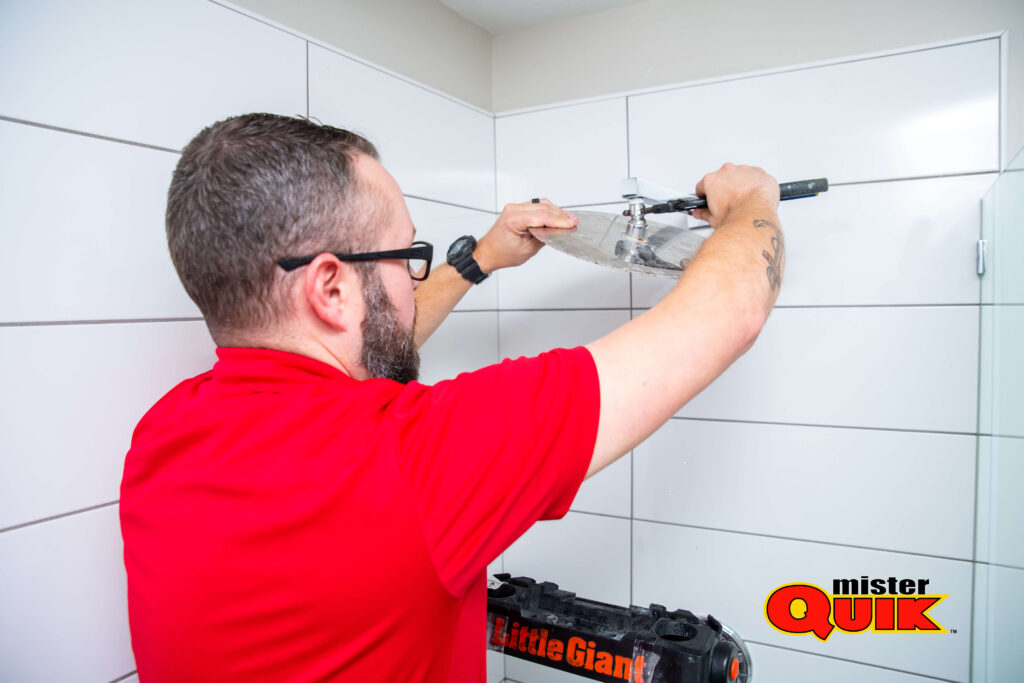
The drainage and sewage system is an essential part of any plumbing system, responsible for removing wastewater from your home. It consists of two main components:
It’s crucial to maintain both the drain and sewer systems properly to prevent blockages, leaks, and potential health hazards.
A blocked sewage drain is a serious plumbing issue that can quickly lead to inconvenience and unsanitary conditions. Signs of a blocked sewage drain may include:
If you suspect a blocked sewage drain, do not attempt to fix it yourself as it can be unsafe and worsen the problem. It’s crucial to contact a licensed plumber immediately to diagnose the cause of the blockage and perform the necessary repairs safely and effectively.
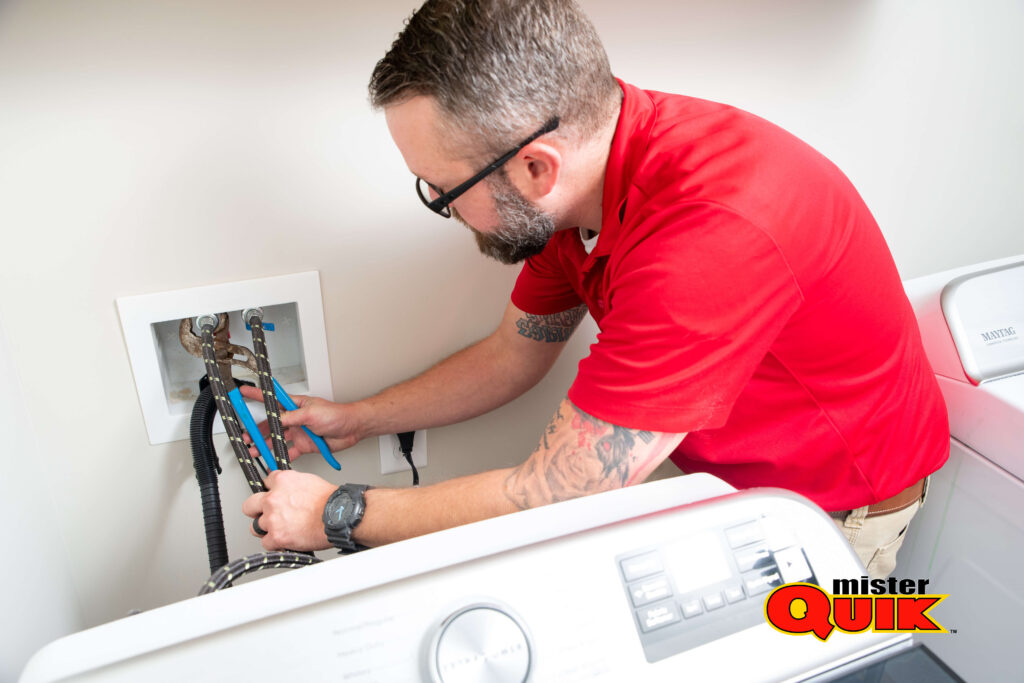
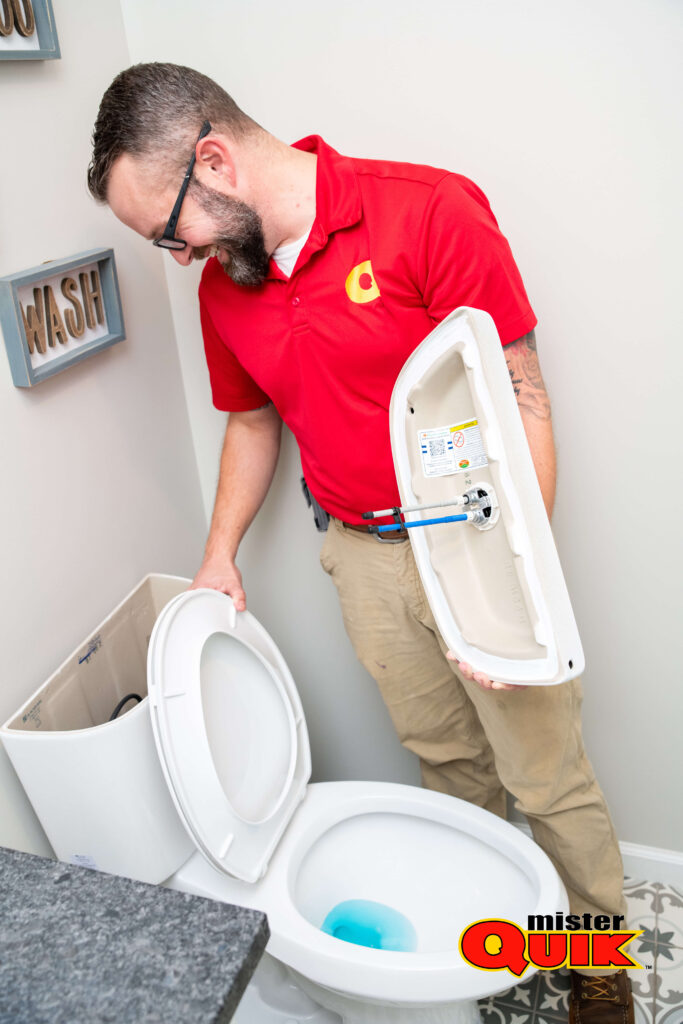
Several factors can contribute to blocked drains, both in the drain system and the sewer line:
While professional help is crucial for addressing severe blockages or issues related to the sewer line, there are some simple DIY methods you can try for minor drain clogs:
Important Note: These methods are only suitable for minor blockages and may not be effective for all situations. If the blockage persists or you suspect a more serious issue, always consult a professional plumber for proper diagnosis and repair.

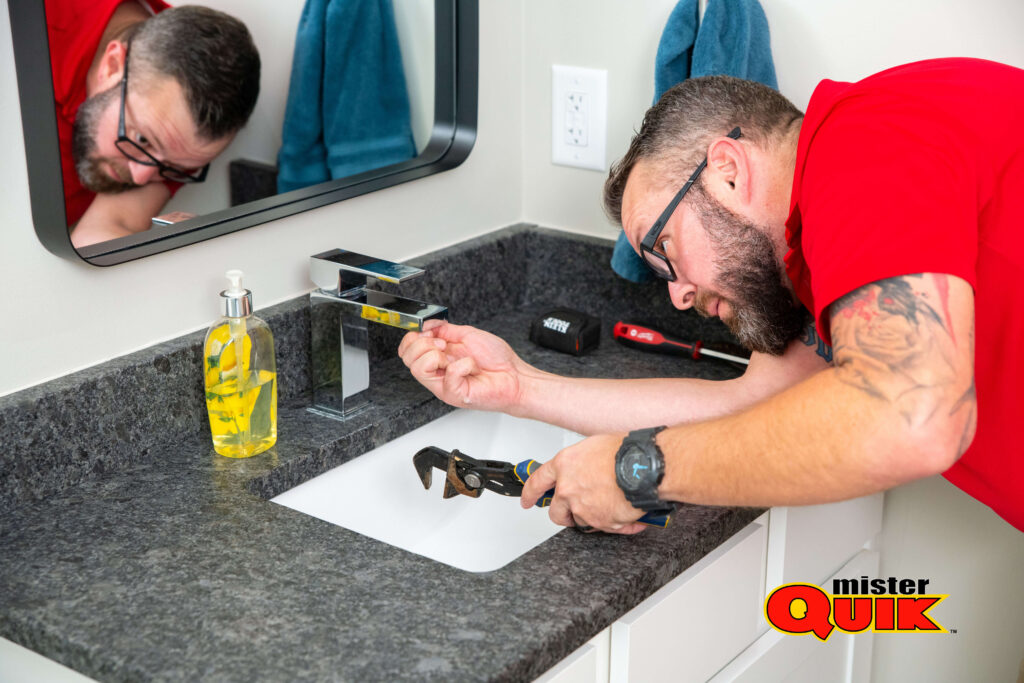
Sewer drain cleaning is a process performed by professional plumbers to clear blockages in the sewer line. This specialized task requires specific equipment and expertise to ensure the safe and effective removal of clogs or debris.
Here are some common methods used for sewer drain cleaning:
By employing the appropriate techniques and equipment, professional plumbers can effectively address sewer drain blockages and restore proper drainage in your home.
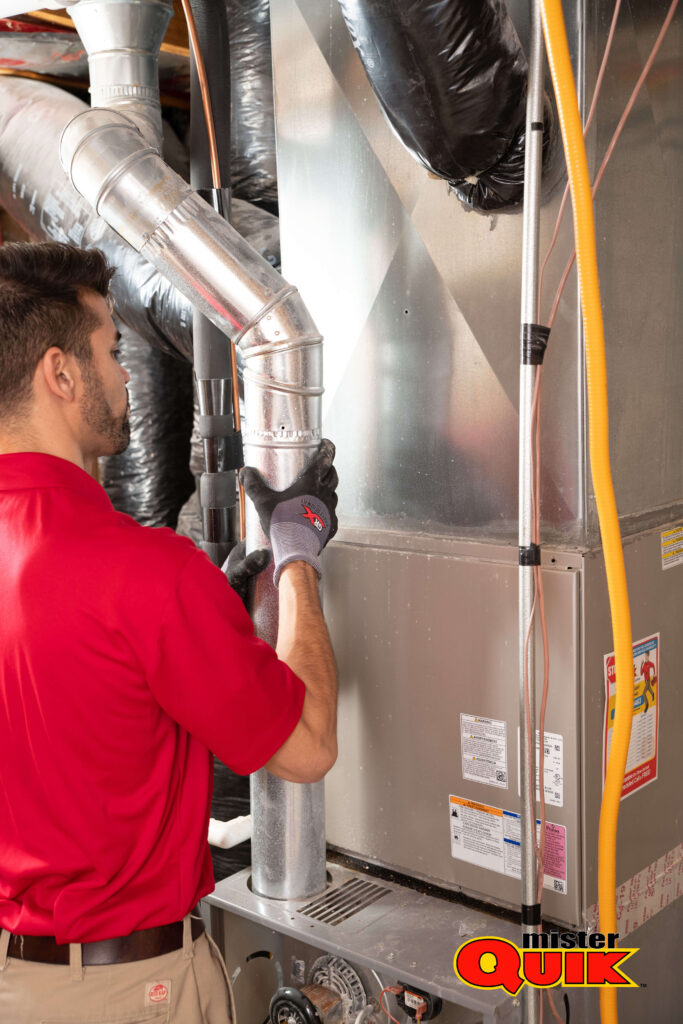
While there is no single standard encompassing all indoor air pollutants, various organizations have established guidelines for specific air quality parameters. Here are some prominent examples:
It’s important to note that these standards might differ based on the pollutant and the specific context (e.g., residential vs. workplace). Refer to the respective organization’s website for detailed information and applicable standards.
Indoor air quality companies offer various services related to improving the air quality in your home. These services may include:
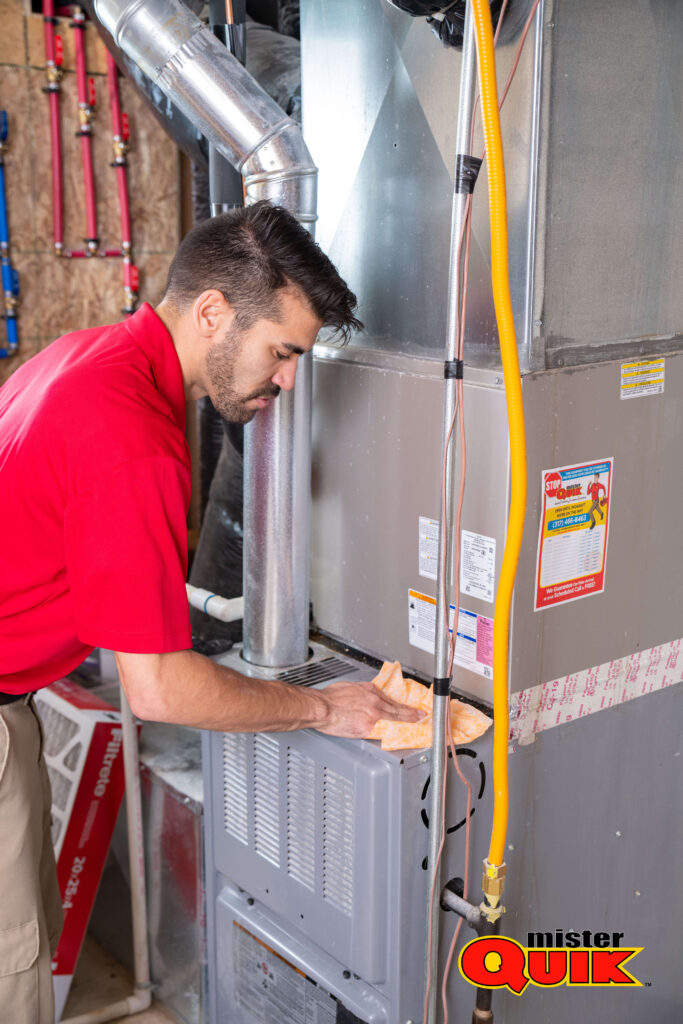

Indoor air quality testing involves collecting air samples and analyzing them for various pollutants. This can help identify potential health risks and inform strategies for improving air quality.
Testing can be performed for:
Testing methods:
Benefits of testing:
Here are some additional ways to improve indoor air quality:
By implementing these practical steps and considering them holistically, you can significantly improve the air quality in your home, creating a healthier and more comfortable environment for yourself and your loved ones. Remember, maintaining good indoor air quality is an ongoing process that requires continuous effort and vigilance.

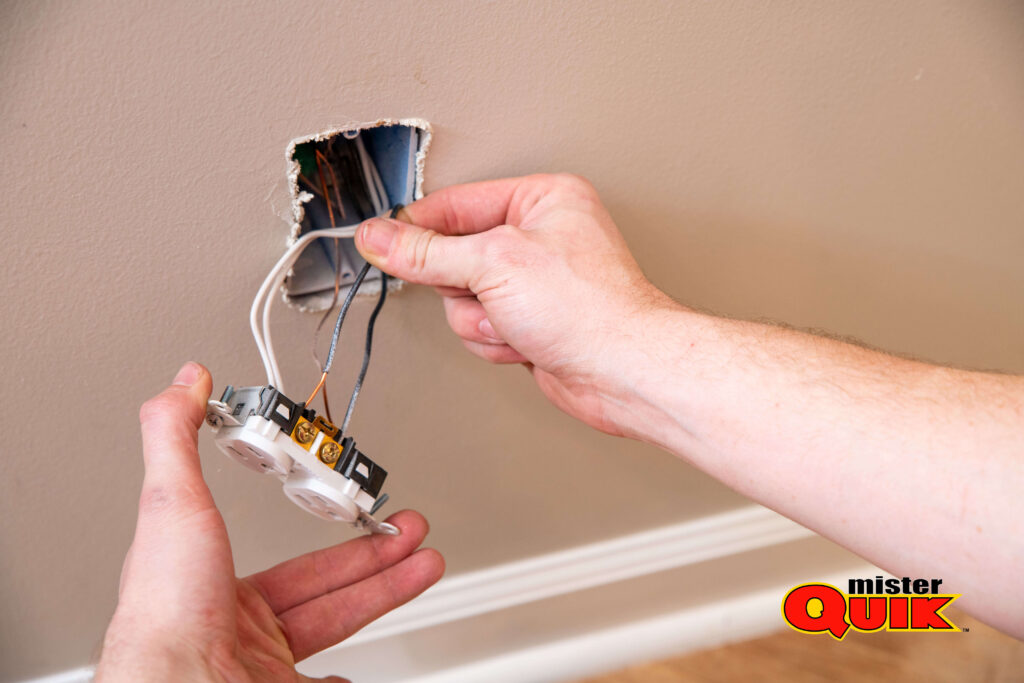
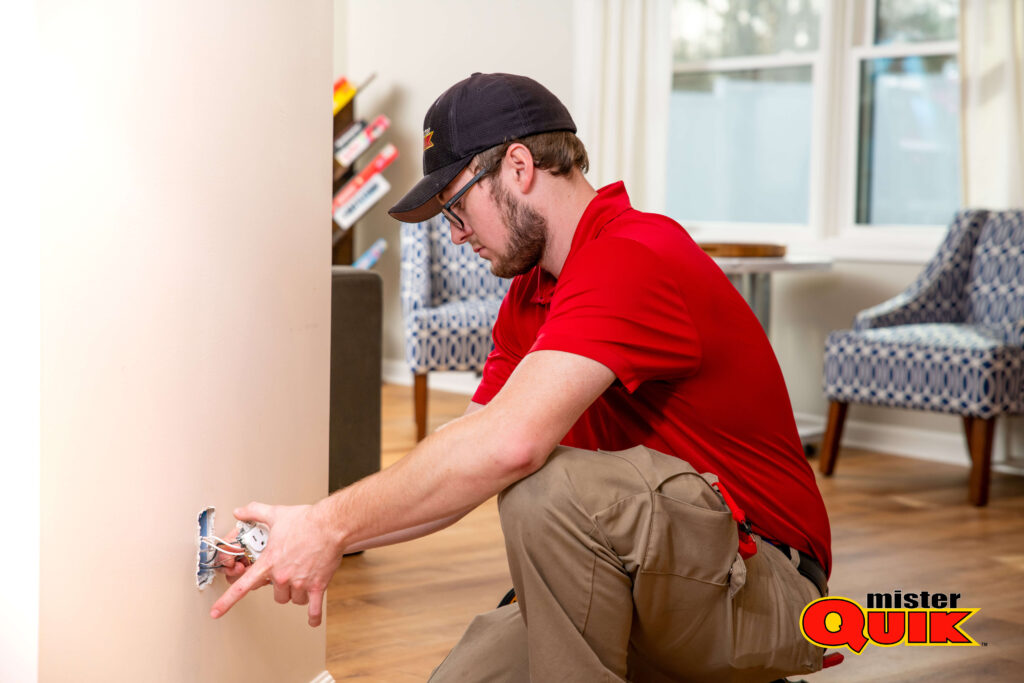
An uninterrupted and reliable electrical supply is crucial for the functioning of various appliances and systems in your home. Here’s an overview of different aspects related to electrical supply:
By understanding the basics of electrical supply and taking appropriate safety measures, you can ensure the smooth and safe operation of your home’s electrical system.
Keeping Your Home Powered Up
Electrical work encompasses various tasks related to the installation, maintenance, and repair of electrical systems in your home. Here’s a breakdown of some common electrical services:
Hiring a Qualified Electrician:
When seeking electrical services, it’s crucial to choose a licensed and experienced professional. Look for electricians with a good reputation, inquire about their areas of expertise and insurance coverage, and obtain quotes before making a decision. By entrusting electrical work to qualified professionals, you can ensure the safety, efficiency, and functionality of your home’s electrical system.
Remember, electrical work can be hazardous if not done correctly. Always prioritize safety and leave electrical tasks to licensed professionals.
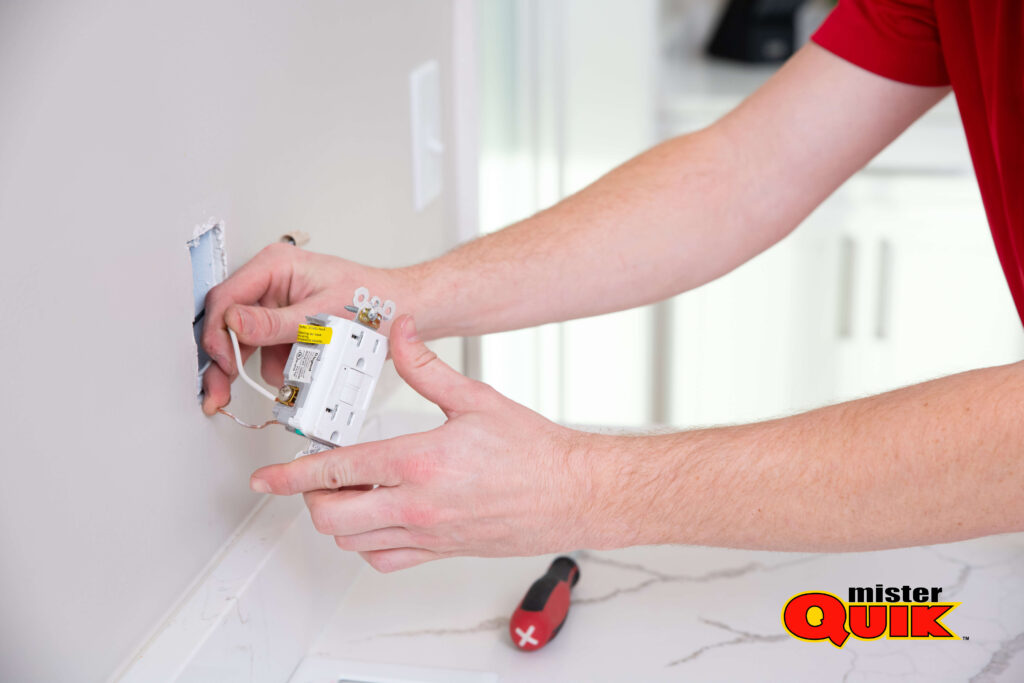
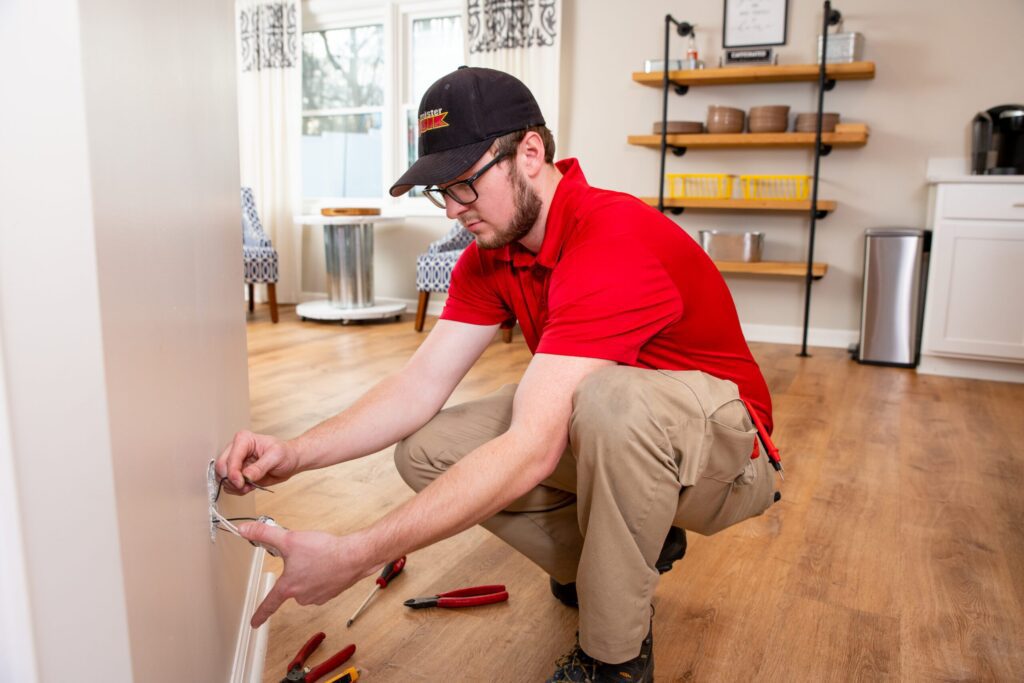
4.8 7,000+ reviews We’re in your neighborhood Indianapolis Call now! we’re here 24/7 Westfield Air Handler Schedule on your own without making a call. Click
Old Man Winter is back, and his icy touch extends beyond frost on windows and frosty mornings. One hidden danger lurks beneath the surface –
Old Man Winter is knocking, and his icy grip can bring more than just frost on your windows. It can send your energy bills skyrocketing
As winter descends upon us, with temperatures dropping and snowflakes dancing in the crisp air, our homes transform into cozy sanctuaries against the cold. It’s
General Contractor License: GC1200161
Electrical License: E0020131
HVAC License: H0020150
Plumbing License: CO50900281
General Contractor License: GC1200161
Electrical License: E0020131
HVAC License: H0020150
Plumbing License: CO50900281